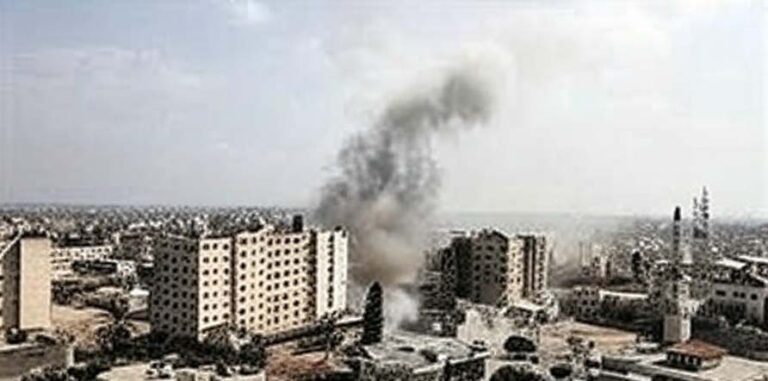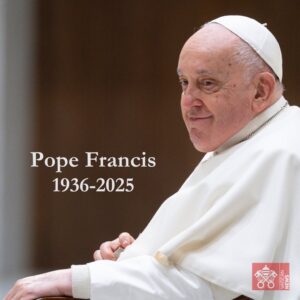Pope Francis Dies at 88, Leaving Legacy of Compassion and Reform
Vatican City, April 22, 2025 — Pope Francis Dies at 88, Leaving Legacy of Compassion and Reform, Pope Francis, the first Latin American pontiff and a transformative figure in the Catholic Church, passed away today at 88 in his residence at Casa Santa Marta, Vatican City, after a prolonged illness. The Vatican confirmed his death at 7:35 AM local time, attributing it to a stroke that led to a coma and irreversible cardiovascular collapse, as stated in the official death certificate issued by Dr. Andrea Arcangeli.

Born Jorge Mario Bergoglio in Buenos Aires, Argentina, Francis led the Catholic Church’s 1.4 billion followers since March 13, 2013, succeeding Pope Benedict XVI. His 12-year papacy was defined by humility, advocacy for the marginalized, and efforts to modernize the Church. Known as the “People’s Pope,” he championed issues like poverty, migration, climate change, and interfaith dialogue while pushing for Vatican transparency and addressing clergy abuse.
Cardinal Kevin Farrell, the Vatican’s camerlengo, announced the passing, stating, “This morning, the Bishop of Rome, Francis, returned to the house of the Father.” The Vatican flag was lowered, and global landmarks, including Rio de Janeiro’s Christ the Redeemer, lit up in tribute. World leaders, including U.S. President Donald Trump, Italian Prime Minister Giorgia Meloni, and Argentine President Javier Milei, offered condolences, alongside cultural icons like Lionel Messi and institutions like the San Lorenzo football club, reflecting Francis’ deep Argentine roots.
Francis’ health had been frail, with a severe bout of bilateral pneumonia in early 2025 requiring over five weeks of hospitalization at Rome’s Gemelli Hospital. His chronic bronchiectasis, hypertension, and type II diabetes compounded his condition. Despite a hopeful public appearance on Easter Sunday, April 20, delivering a blessing from St. Peter’s Square, his sudden decline stunned the faithful.
A Papacy of Change and Controversy
As the first Jesuit pope, Francis brought a pastoral approach, living modestly in Casa Santa Marta rather than the Apostolic Palace. His 2013 apostolic exhortation Evangelii Gaudium set the tone for a Church focused on joy and outreach, while his 2015 encyclical Laudato Si’ became a global call for environmental stewardship. He opened doors to the LGBTQ community, famously saying, “Who am I to judge?” and allowed blessings for same-sex couples, though he upheld traditional stances on abortion, clerical celibacy, and women’s ordination.
His reforms included cleaning up the Vatican Bank and establishing systems to combat clergy abuse, but critics argued he fell short on comprehensive abuse reforms. Conservative factions within the Church resisted his progressive leanings, creating tensions that shaped his papacy.
Final Wishes and Funeral Plans
In his 2022 will, Francis requested a simple burial at the Basilica of Santa Maria Maggiore, with a plain tomb inscribed “Franciscus,” breaking from the tradition of burial in St. Peter’s Basilica. The Vatican plans to move his body to St. Peter’s for public viewing as early as April 23, with the funeral expected between April 25 and 27, following the nine-day Novemdiales mourning period. An anonymous benefactor will cover funeral costs.
The Path Forward
The Church now enters the sede vacante period, with Cardinal Farrell overseeing governance. The College of Cardinals, led by Dean Cardinal Giovanni Battista Re, will meet on April 22 to plan the funeral and the conclave, set to begin 15–20 days later to elect a new pope. Approximately 120 cardinals under 80, most appointed by Francis, will vote in the Sistine Chapel, requiring a two-thirds majority. Black smoke will signal inconclusive votes, and white smoke will announce the new pope with the words “Habemus Papam.”
Rituals, simplified by Francis in 2024 under the Universi Dominici Gregis constitution, include sealing his apartments and breaking his Fisherman’s Ring. No autopsy will be performed, per tradition.
Pope Francis Dies at 88, Leaving Legacy of Compassion and Reform, Global Mourning
Argentina and Brazil declared seven days of mourning, with Chile, Spain, and others observing shorter periods. A planned canonization for Carlo Acutis on April 27 has been postponed, underscoring the Church’s focus on this transition.
Pope Francis leaves a legacy of compassion, reform, and dialogue, but also a Church at a crossroads. As the world mourns, the Catholic faithful look to the conclave to choose a successor to guide them into an uncertain future.

























+ There are no comments
Add yours